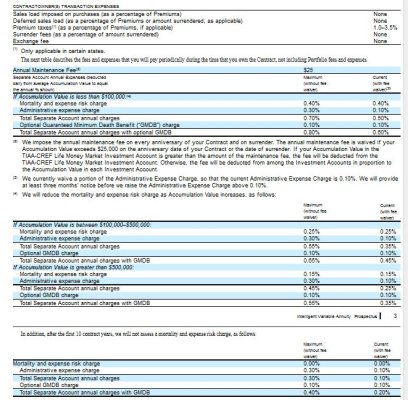DebER
Dryer sheet aficionado
Hi,
I have a variable annuity that I purchased in 2000 that started out with American Skandia, but was sold to Prudential several years ago.
How I wish I had not purchased this, but I was conned by a "financial advisor" that I trusted at the time.
Long story short, I invested 28K and, no matter how I move, I cannot get the value past a little over $15K.
Should I roll over what I have left into my new retirement account at work? I just opened a Guided Portfolio program with Valic that I will fund through payroll deduction. Or do you have other suggestions on how I can begin to recoup some of the loss.
The reason I bought this annuity is because I was wrongly told by the "advisor" that it was "guaranteed to double in 10 years".
I've learned a lot since then, but I'm on the fence as to roll it and take a large loss or keep it as my insurance policy since my beneficiary will at least get the 28K. However, I do not have children and have more than enough to leave my husband and charity. Thanks so much for your thoughts!
I have a variable annuity that I purchased in 2000 that started out with American Skandia, but was sold to Prudential several years ago.
How I wish I had not purchased this, but I was conned by a "financial advisor" that I trusted at the time.
Long story short, I invested 28K and, no matter how I move, I cannot get the value past a little over $15K.
Should I roll over what I have left into my new retirement account at work? I just opened a Guided Portfolio program with Valic that I will fund through payroll deduction. Or do you have other suggestions on how I can begin to recoup some of the loss.
The reason I bought this annuity is because I was wrongly told by the "advisor" that it was "guaranteed to double in 10 years".
I've learned a lot since then, but I'm on the fence as to roll it and take a large loss or keep it as my insurance policy since my beneficiary will at least get the 28K. However, I do not have children and have more than enough to leave my husband and charity. Thanks so much for your thoughts!

